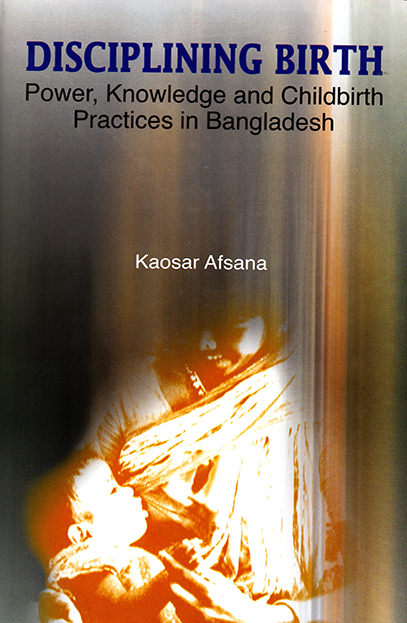- Shop
- Disciplining Birth: Power, Knowledge and Childbirth Practices in Bangladesh
Disciplining Birth: Power, Knowledge and Childbirth Practices in Bangladesh
https://uplbooks.com/shop/9789840517411-disciplining-birth-power-knowledge-and-childbirth-practices-in-bangladesh-6616 https://uplbooks.com/web/image/product.template/6616/image_1920?unique=3d813f3
| Language: English |
Tags :
Book Info
This book is about birth practices among poor, rural women in Bangladesh. Kaosar Afsana has used a multidimensional framework for the study. She draws upon ideas and perspectives from history, anthropology, gender and socio-political economy to analyse experiences of self and others, which are truly impressive. It is a pioneering study where various choices available for birthing care in the country are addressed. Ironically, the author observes that there was a certain resistance of the poor, rural women to cosmopolitan obstetrics representing: authoritative knowledge of biomedical professionals and medicalised experience of birth, interpersonal relationship of doctors and nurses with birthing women, hospital costs and unpleasant experiences of childbirth in hospitals. On the contrary, they prefer to adhere to indigenous birth practices comprising of trust and dependence on daini's skills, understanding of birth, women's embodied knowledge and active participation of birthing women and other women in birth events. The author's analysis reveals that the poor, rural women of Bangladesh opted for a more supportive environment at home, which they considered more conducive to their understanding of birth. The study highlights the role of the State in promoting medical professions and in marginalizing indigenous knowledge of birth. In order to improve birthing care for poor, rural women in Bangladesh, it is crucial to strengthen women's roles in birth events, acknowledge indigenous knowledge of birth, organise community-based programmes, reorganise hospital obstetric services, degovernmentalise the State, democratise health policy and organise support at international levels for pro-women, pro-poor obstetric care. This significant study should be of interest to policy planners, medical professionals, scholars of anthropology, gender studies and public health, feminists, social activists and NGOs working with women.

Kaosar Afsana
Kaosar Afsana has been working at BRAC for more than 12 years. She graduated from Dhaka Medical College, Bangladesh and carried out post-graduate studies at Harvard University, USA and Edith Cowan University, Western Australia. Her PhD thesis has received several prestigious awards including the Asian Studies Association of Australia's Presidents Prize for the best thesis on an Asian topic in 2004. Afsana authored a book Discoursing Birthing Care: Experiences from Bangladesh (UPL 2000) and published articles in various journals. Her main areas of interests are reproductive health, gender, health systems and research methodology.

কাওসার আফসানা
Kaosar Afsana has been working at BRAC for more than 12 years. She graduated from Dhaka Medical College, Bangladesh and carried out post-graduate studies at Harvard University, USA and Edith Cowan University, Western Australia. Her PhD thesis has received several prestigious awards including the Asian Studies Association of Australia's Presidents Prize for the best thesis on an Asian topic in 2004. Afsana authored a book Discoursing Birthing Care: Experiences from Bangladesh (UPL 2000) and published articles in various journals. Her main areas of interests are reproductive health, gender, health systems and research methodology.



